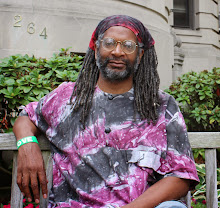Excerpt from "Healing Wisdom of Africa" by Malidoma Patrice Some'
"Purpose begins with the individual, and the sum total of all the individuals' purposes creates the community's purpose. The community thus takes upon itself the responsibility of nurturing and protecting the individual, because the individual, knowing her or his purpose, will then invest energy in sustaining the community. There is a certain reciprocity at work here, because the community recognizes that its own vitality is based in the support and protection of each of its individuals, especially in the constant support and reminding of each individual of his or her purpose. The individual, knowing this, in turn delivers to the community the gifts that the community has successfully awakened in him or her.
The presence of a community to awaken our gifts in us is necessary because the process of being born tends to erase our memory of why we came here. And the blindness that we have toward our purpose is progressive. Early in life you are still at that place where you feel that you might do something. Children's vitality and enthusiasm are reminiscent of the forces that motivated them to come here. Of course, the coldness of this world and the rather clear hostility that most of us encounter trying to survive discourage us from the ind of purpose that we were originally so enthused about. Even within the indigenous context, there is a need for ritual to make sure that the damage done to you by society, to the point where your enthusiasm is tampered with, is repaired, so that you can embrace your purpose fully. Being born into this world is a trying experience. Whatever enthusiasm you bring with you here can be toned down and radically edited simply as a result of being here. The time of physiological transformation when you are growing up is particularly trying, and in this process a toll is taken on your sense of purpose, including forgetting. All of these changes at the time of puberty have a deep influence on the dynamics of relationship, both with the unseen world and the world that can be seen.
Also, for most young people, the stark visibility of the seen world affects their perception of the unseen world. Discrimination begins when you say that you can touch this and that, and therefore the reality of the tangible. If you are not exposed to community ritual, you are vulnerable to growing away from Spirit, until you die. The physiological signs of puberty mark a time when a specific type of ritual is called for. one designed to reconnect the person with the world of spirits and their purpose, and this is what we call initiation. Later in the book we will speak more of rituals of initiation, but for now what is important is that rituals of all kinds help to reawaken the intensity that brought us here. Making ritual a part of daily life will help to rekindle the intensity that keeps us on the path of our purpose."
(pp. 34-35)
~~~~~~~~~~~~~~~~
The above passage begins to illuminate the solutions that lie mostly dormant as we are challenged by the continual alienation of human from nature/spirit and human from human, especially with respect to youth alienation from the larger society, defined sharply and tragically in the continuing occurrence of teenage boys committing murder and other crimes in an attempt to "self-initiate" themselves, to create community for themselves seemingly at any cost. This dynamic is taking place in the "inner-country" and the "inner-city".
Some of the essential work in this regard that is necessary in this and many other societies and communities is being defined and developed by people like Malidoma Some' and other Dagara Elders, Martin Prechtel and Michael Meade. Organizations like East Coast Village, Rights of Passage Council and Sacred Fire, amongst others, are moving community, ritual, nature and Spirit into the forefront of human consciousness and life in ways that are challenging the problems that modern life presents at their core.
No community is safe from the neglect and ignorance of it's own hidden pain and self-made trauma.
Our greatest communal legacy may yet be that we will be able to look back and say we faced our deepest collective fears, together, with spiritual intent, with courage and compassion.
Thursday, October 15, 2009
Indigenous Wisdom: Healing Individual Alienation and Communal Decay
Labels:
alienation,
communalism,
community,
crime,
East Coast Village,
healing,
indigenous,
indigeny,
initiation,
Malidoma Some',
murder,
puberty,
purpose,
rights of passage,
spirituality,
violence,
youth
Subscribe to:
Post Comments (Atom)


No comments:
Post a Comment